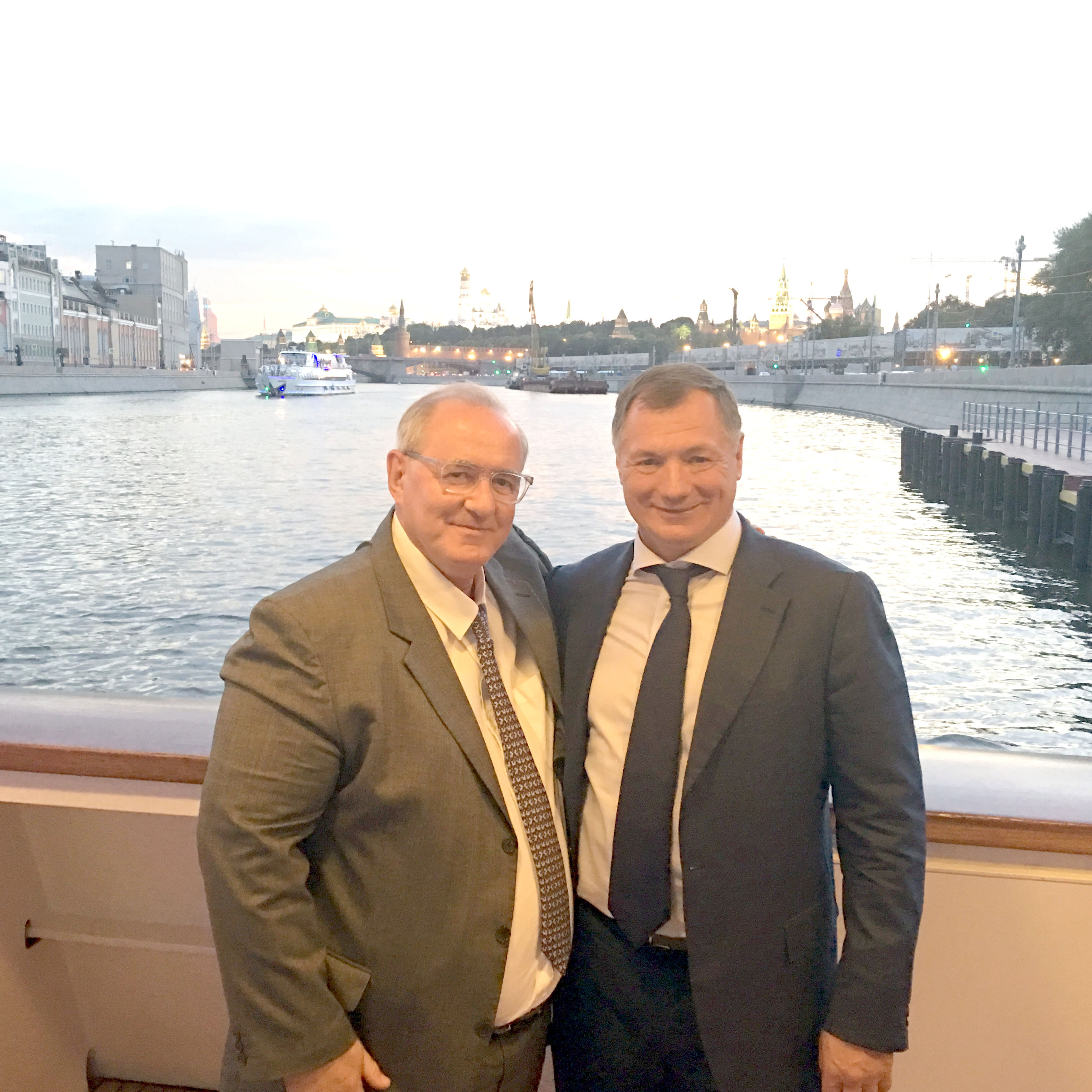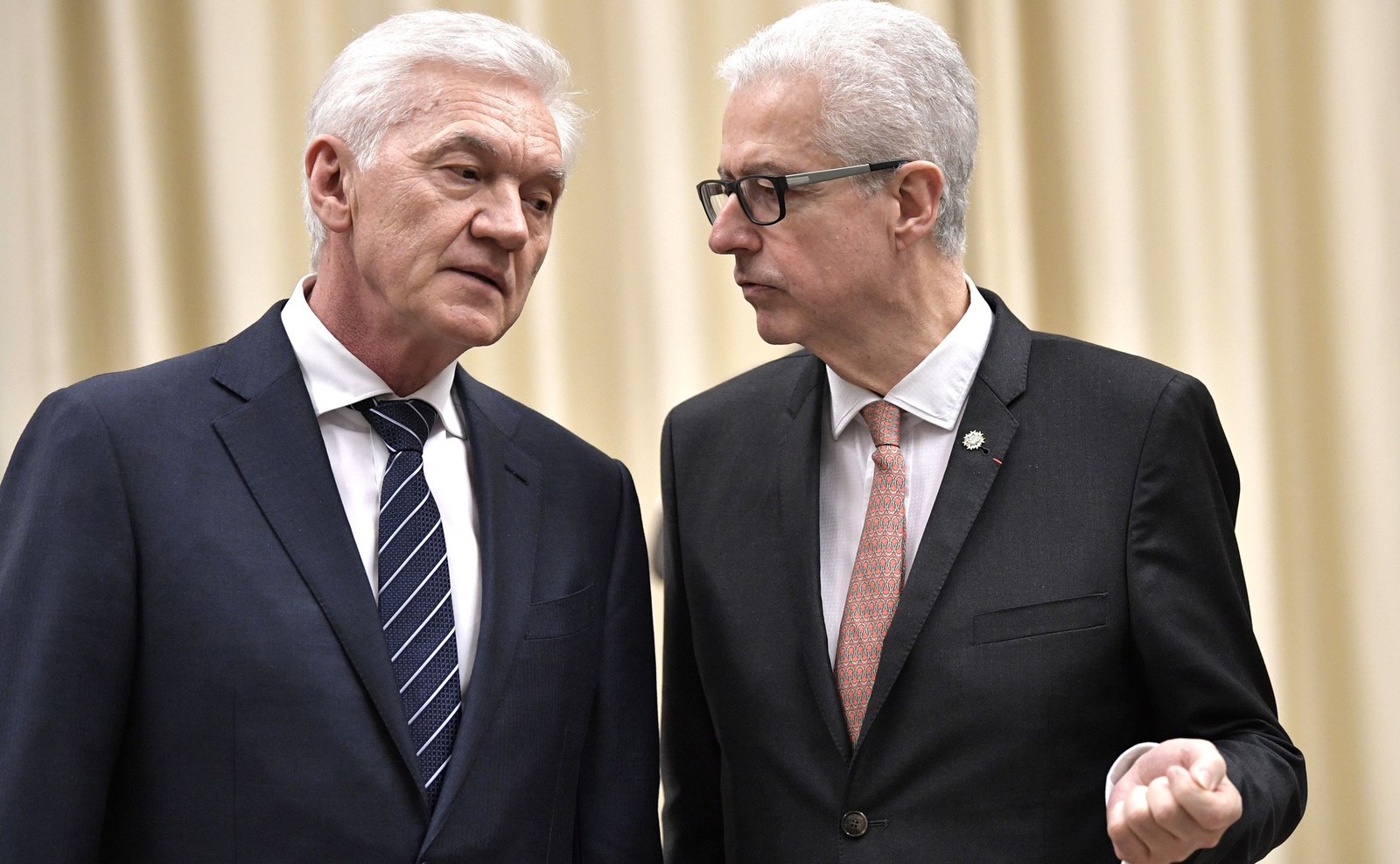Foreign nationals in Russian companies
In the middle or April this year, there was a scandal in France involving Maurice Leroy, former Minister of City Affairs and National Assembly member. After his resignation from parliament, he became a Russian citizen and joined the Russian JSC “Mosinjproekt”, which is fully owned by the municipal government of Moscow, as Deputy Director General for International Affairs and Prospective Projects. Among other things, the company of the Moscow government works on the development of the Moscow metropolitan area — a huge territory donated by the Moscow oblast a few years ago. According to local media, the National Assembly commission is looking into a possible use of the politician's connections in France in the interest of Russia. His connections with pro-Russian media in France are also under scrutiny. Maurice Leroy, however, strongly denies having used his connections to further Russian interests.

Photo credit: larenaissanceduloiretcher.fr
Hiring foreign nationals to fill executive positions was a common practice in Russia in the recent years — even in medium-sized businesses. This is not always about political gain achieved by hiring such heavy-weights as the former Chancellor of Germany Gerhard Schroeder, former Minister of Foreign Affairs of Austria Karin Kneissl or former Prime Minister of France François Fillon to Russian industrial giants. Not only are expats hired to bring real-life experience of civilized governance into the Russian corporate culture, but also for their contacts and connections in the West to facilitate the export of goods and services, developing partnerships, and lobbying the interests of Russian business in Europe and worldwide.
After the beginning of Russia’s full-scale invasion, the National Agency on Corruption Prevention of Ukraine set up a “sanction portal” with a section dedicated to foreign members of supervisory boards and boards of directors, top managers and independent advisors hired by Russian businesses. One of the goals was to force the foreign nationals into resigning to demonstrate solidarity with Ukraine and protest against the war. Still, more than a year after 24 February 2022, a large number of expats continue serving Russian interests and providing potential connections with the civilized world.
We have studied the NACP list of European expats and selected the ones who hold executive positions in native Russian businesses (i.e. not Russian branches of Western companies) and added them to the database of potential Russian lobbyists in Europe. Even a brief look at their history of connections and contacts may cause many more questions in their home countries than those posed to the aforementioned Maurice Leroy.
The former Chairman of the Franco-Russian Chamber of Commerce and Industry Emmanuel Quidet who sits on the board of Novatek owned by Leonid Mikhelson is a fine example of such people. The Wikipedia page on Quidet in Russian is clearly biased towards Russia’s political and economic interests: the lobbying of lifting the anti-Russian sanctions in the French parliament is presented as one of his most prominent achievements. The Belgian citizen Luc Maene is another lobbyist with rich experience: the former Chairman of the International Fertilizer Association (IFA) and its acting ambassador now sits on the board of directors of the Russian Uralkali. Unlike the owner himself, Dmitry Mazepin's company managed to dodge the sanctions.

Many foreign nationals own private consulting firms or work as independent directors for Russian companies while retaining their positions in European companies. Such a double life is perfectly suited for promoting the mutual interests of the both employers. For example, the Swedish citizen David Rönnberg who sits on the board of directors of Detskiy Mir owned by Vladimir Yevtushenkov’s AFK Sistema also heads the Finish Musti Group, a major supplier of animal care products. The German citizen Andreas Blase, one of the top managers of MediaMarkt, a German multinational chain of stores selling consumer electronics, is also a board member of Said Gutseriev's M.Video. The French citizen Marc Rene Michel Granger from Alstom sits on the board of directors of its Russian partner Transmashholding in which Iskandar Makhmudov is a majority shareholder.
Some foreign nationals manage to work for several Russian oligarchs simultaneously which offers them a unique opportunity for spreading their influence across many industries. For example, the UK citizen Marcus James Rhodes, a board member of PhosAgro owned by Andrey Guryev, is also an independent director with QIWI, a leading provider of payment and financial services in Russia and the CIS (the company belongs to Sergei Solonin, Forbes Russia No. 196). Mr Rhodes also sits on the board of Segezha Group LLC, a Russian timber holding company managed by Vladimir Yevtushenkov's AFK Sistema. The Norwegian businessman Sven Ombudstvedt is also employed by PhosAgro. Mr Ombudstvedt formerly managed the operations of Yara International ASA, one of the world's largest fertilizer producers from Norway. In 2004-2009, Yara was forced to bribe Russian agents for a few dozen million euros causing a huge scandal at home and later lawsuits. In 2011, Yara transferred its ownership stake in Russian mining company Apatit a company controlled by PhosAgro. In return, PhosAgro granted Yara a favorable five-year supply contract.
Feel free to browse our dataset to lean more about other foreign nationals employed by Russian companies.
Read next:
Is an ex worth a second chance? ⟶

